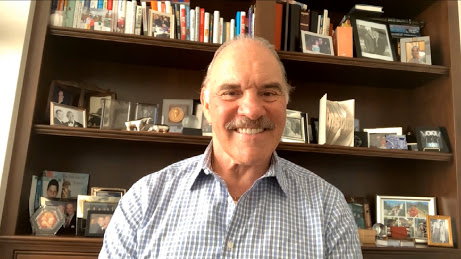 NEWS
NEWS
 NEWS
NEWS
 NEWS
NEWS
If there was ever a prime example of the need to transform a business model ahead of the competition, it was Charles Schwab Corp.
The financial services company sprang from the deregulation of brokerage commissions in 1975 and quickly built an empire based on 24-hour trading and significantly discounted fees. Then, in the 1990s, the internet changed everything.
“The internet popped up and started becoming commercialized,” recalled David Pottruck (pictured), educator, author, executive and chairman of Red Eagle Ventures and former chief executive officer of Charles Schwab. “These firms didn’t have call centers; they didn’t have branch offices. If you wanted to do a trade, you did it over your computer online and the pricing was dramatically less.”
Schwab responded by starting its own online trading business — e.Schwab — and offered a 20% discount for customers to use it. Yet internet competitors were still charging dramatically less, and Schwab’s customers started sending messages to Pottruck and his team asking why the firm didn’t meet the steeply discounted pricing.
“There were dozens and then hundreds and then thousands,” said Pottruck, who went to company founder Chuck Schwab with his concerns. “I said I think we need to make a change because no great company was built on the back of unhappy customers.”
Pottruck spoke with Jeff Frick, host of theCUBE, SiliconANGLE Media’s livestreaming studio. They discussed the goals of “triple bottom line” management, the importance of soliciting meaningful customer feedback and how Pottruck dedicated himself to becoming a better public speaker.
As Schwab discounted pricing even further in the late 1990s to meet competitive demands, Pottruck became co-CEO and then sole CEO of the company. He brought to his leadership role a philosophy of “triple bottom line” management, which focused on creating a highly motivated workforce and strong customer loyalty in addition to profitability.
“We’re out for something more than a financial bottom line; we’re out for something that’s great for customers and maybe pretty great for employees as well,” Pottruck said. “I believe that in many cases that’s a great strategy. I have yet to see the Wall Street firm that is talking about triple bottom lines.”
During his tenure at Schwab, Pottruck sought to nurture strong customer-service values. He oversaw a compensation system that was not based on trade volume, a common practice in the brokerage industry, but tied instead to generating customer goodwill as measured by surveys and face-to-face customer feedback.
In his book, “Stacking the Deck,” Pottruck refers to this communications process as a system where customers are asked “high-gain” questions designed to elicit meaningful response.
“If you had to pick out things we don’t do well, what would they be?” Pottruck asked. “Give the customer permission to be critical. You need to ask those kinds of high-gain questions where there is no polite answer.”
After his career at Schwab, Pottruck led several investment firms, taught at the Wharton School of Business ,and has been an active public speaker. While he was CEO, he hired a speechwriter/coach to improve his speaking ability and dedicated himself to improving his craft.
“When I got promoted to be the CEO of Schwab, I knew I was going to have to do a lot more public speaking,” Pottruck said. “It’s not just the words; it’s also the passion, energy, meaning, and connection behind the words. People are clamoring for authentic leadership.”
Here’s the complete video interview, one of many CUBE Conversations from SiliconANGLE and theCUBE:
THANK YOU